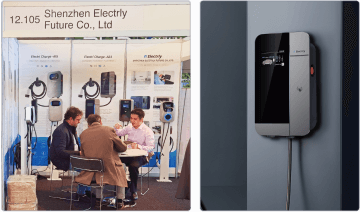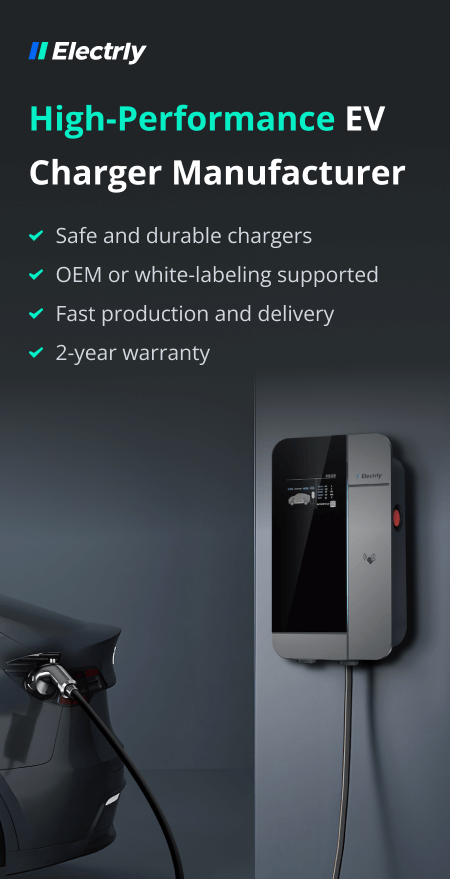The idea behind electric vehicles (EVs) is to provide green transportation as a replacement for petrol or diesel-powered vehicles. However, electricity generation relies on various sources including natural gas, petrol, coal, nuclear fission, and solar energy.
As EVs continue to evolve, researchers and manufacturers are exploring ways to eco-friendly charging through Smart Charging. This technology optimizes charging efficiency while reducing energy consumption and ultimately provides cost savings to consumers.
Understanding EV Smart Charging
Smart Charging is a safe and convenient way of charging EVs at certain times when there is less demand for electricity, for example at night, or during periods when there is more renewable energy on the grid.
It basically connects all factors including the charger, the utility company, and the power grid, and in most cases the EV onboard computer through a data connection.
Smart Charging allows the utility companies to place limits on energy consumption, so the grid is not overloaded by a demand for more energy than is being produced.
This will be very important as more and more people start using EVs, saving them time and money to better protect the planet's precious resources.
Features of EV Smart Charging
Smart charging is a technology that enables an EV to receive power in an efficient and cost-effective way, considering factors such as electricity cost, availability, and the driver's needs. It accomplishes this by creating a data connection between the EV, charger, cloud-based platform of the charge point operator, and the power grid, which allows for monitoring and adjustment of energy consumption.
The main features of the system are:
- Power Sharing or Load Balancing - It allows businesses with multiple chargers to distribute the available energy capacity proportionally across all active EV charging points. Since the available power is limited at each site, high demand for more energy would require electrical infrastructure upgrades. This means power can be balanced and distributed across the charging points so that upgrades are not necessary.
- Power Boost - It is especially for home charging, and prevents you from using more than your home's electrical capacity which would be more expensive. It balances the loading between your charger and other household appliances, so that when you are near maximum capacity, the Smart Charging control system will automatically reduce the amount of power being used to charge your car, and even pause the charging session until more power becomes available.
- Dynamic Power Sharing - This is a combination of both Power Boost and Power Sharing and it allows the charging demand to be monitored and measured against the maximum energy capacity. When demand is lower than maximum, the available power is directed to the charging network and the available energy is evenly distributed evenly among all the chargers. By taking advantage of low periods in the overall energy demand, the charging network's requirements can be satisfied without having to increase the installation's overall power supply, or exceed the site's maximum energy capacity.
How Does EV Smart Charging Work?
There are two main factors that make a smart charger different from a regular, non-smart charger, and they are the hardware and the software.
While a smart charger still has the same basic design as a regular EV charger, a key feature is the ability to connect to the internet to send and receive data. This requires a modem to link to a network, and this is built into the smart charger.
Apart from the hardware to allow connectivity, a smart charger also needs software to collect and analyze the usage data, and this is done through a charging app which manages the charger. The EV user can control charging sessions remotely and get accurate energy-usage information to help optimize performance and reduce energy costs.
How to Smart Charge a Car?
It is estimated that there is plenty of capacity to meet the future electricity demand – but not if everyone charges at the same time. Smart charging optimizes the capacity so charging is done at off-peak times. This is most often at night, so Smart Charging is usually done at home.
You should have a display screen on your home Smart Charge point which allows you to enter your preferences, or you can use a Smart Charge app on your mobile device.
- When the charge point has a data connection, the first step is to decide what level of charge you want – either fully charged, or part charge
- Next, you can enter what time you want to stop charging, for example you may be leaving for work early in the morning.
- The third step is to set the minimum charge level so that this is charged first, in case you need to urgently use the vehicle or if there is an outage.
- The Smart Charger sends these preferences through the data connection e.g. WIFI to a cloud-based management platform, which manages the charging to optimize energy consumption while meeting your preferences.
- You can then plug your EV into the chargepoint, although charging may not start straight away, since the Smart Charger will check if the load is balanced and if there is enough capacity on the grid.
- Charging will be completed by the specified time, and you will see the results on the Smart Charger screen and also on the onboard display.
What Are the Benefits of EV Smart Charging?
Smart Charging has a number of benefits to the EV user and also to the power supply system in general.
For the Consumer
- Faster Charging - Smart charging enables the best usage of available charging power, making charging much faster compared to using regular chargers or power sockets.
- Safer Charging - Charging is safer because smart chargers automatically test the connection between the car and the device before starting charging. Also, load management creates an even balance between charging points and other power usage in the same property. In addition, charging events can be remotely stopped if any problem occurs.
- Monitor Energy Consumption - An increase in electricity consumption can be identified by connecting the charging device to a charging service, which automatically collects usage data. It is also useful for drivers of company cars; the data service can report the costs of both public and home charging automatically to the employer.
- Control Charging Time - Smart charging allows the charging to be completed at times when most power is available and power costs are lowest.
- Charging Stations - When not at home, the user app can locate the nearest available charging station, and even reserve a space.
For the Power Supply System
In terms of the power system as a whole, as EVs become more popular there could be problems with many users wanting to charge their EVs at the same time, for example as soon as they come home from work, or simply all plug in overnight.
This could lead to overuse and high demand peaks, eventually requiring electricity networks to be expanded at significant cost. Smart Charging provides benefits to the electricity generating system as a whole by optimizing and stabilizing energy flow within the grid while ensuring a more reliable service.
- Efficient Distribution - Smart Charging enables the power supplier to efficiently distribute the available power between EVs and other power consumers, by using later-in-the-day charging, and optimizing late-night charging, when overall network demand is lowest.
- Benefits for Business - With Smart Charging, businesses offering charge points to their employees or customers can ensure that they maintain a balance between the facility and EV charging to avoid peak pricing charges. Smart Charging gives businesses more control over a building's energy capacity, thus avoiding high demand charges.
The overall benefit of Smart Charging is that less power is consumed, which means less cost to the EV driver and to businesses, and less need for increased power generation which is a benefit to the environment.
How Much Does EV Smart Charging Cost?
A smart charger is an efficient investment that can significantly reduce your power expenses by managing the charging process during off-peak hours, when the demand for electricity is lower and the costs are the most economical.
However since this requires a more sophisticated system than the basic charger, there is an increased initial cost with the charger unit.
The cost of a basic home charger ranges from $300 to $500, and a smart charger with added data connection capability and extra software comes at a higher price, usually around $600 to $800 or even more. This depends on the features and power output that meets both your needs and budget.
In terms of installation, you should expect to pay from $300 to $500 dollars to have a wall-mounted unit installed, depending on local labor rates. This does not include the cost of a permit, which is needed for any EV charger installation in your home.
Depending where you live, there may be state or local incentives for installing an EV Charger. For example, Los Angeles Department of Water and Power is offering a rebate of up to $500 for the purchase of a qualifying Level 2 charger. To see what incentives may be available for buying and installing a home charging unit you can check this on the ChargePoint website.
Conclusion
Early model EVs could be charged at home using a Type 1 charger unit or at highway charging stations, but charging times were generally slow. The introduction of fast charging systems highlighted the need for more power in a shorter time, which could result in system overloading if not properly managed.
As a solution, Smart Charging was developed to balance electrical loads among EVs, homes, and businesses during off-peak demand times. As more EVs are adopted, efficient power management through Smart Charging will become crucial in minimizing running costs and optimizing environmental impact.


